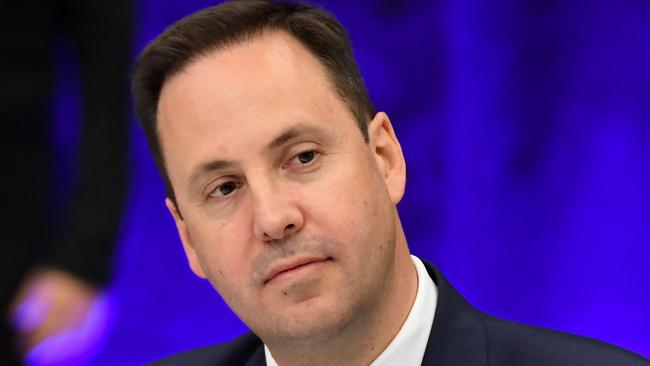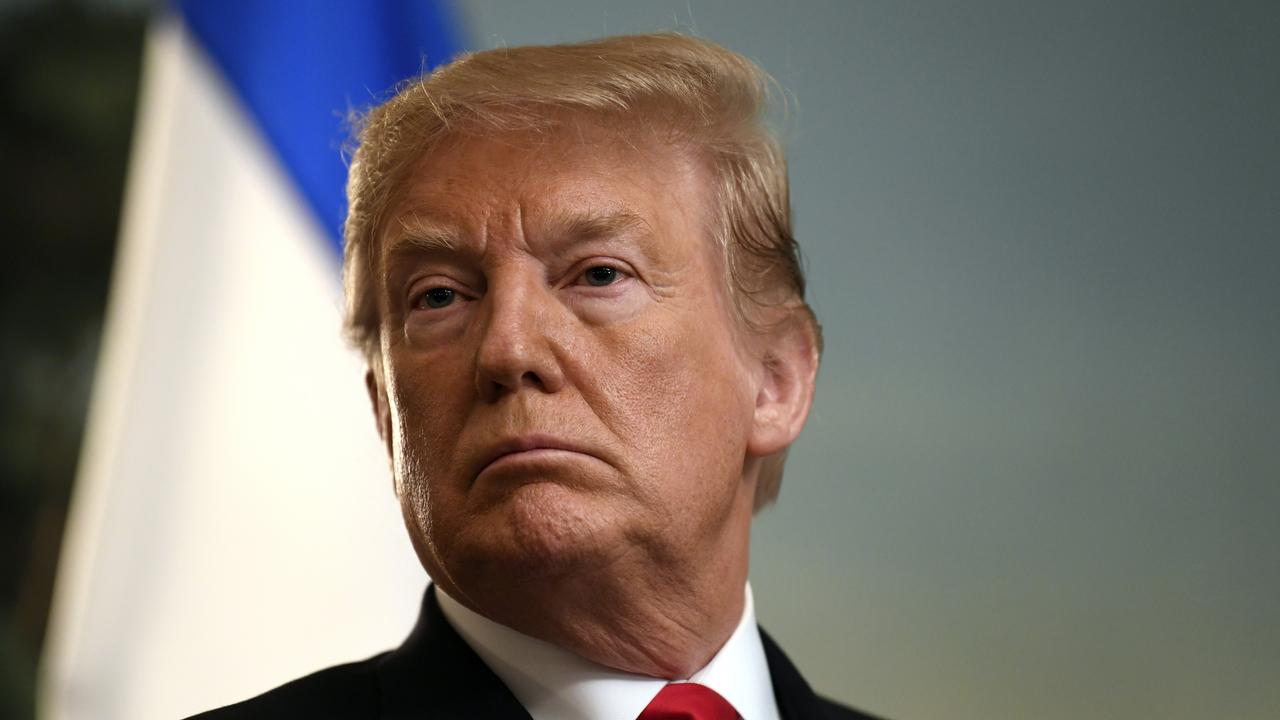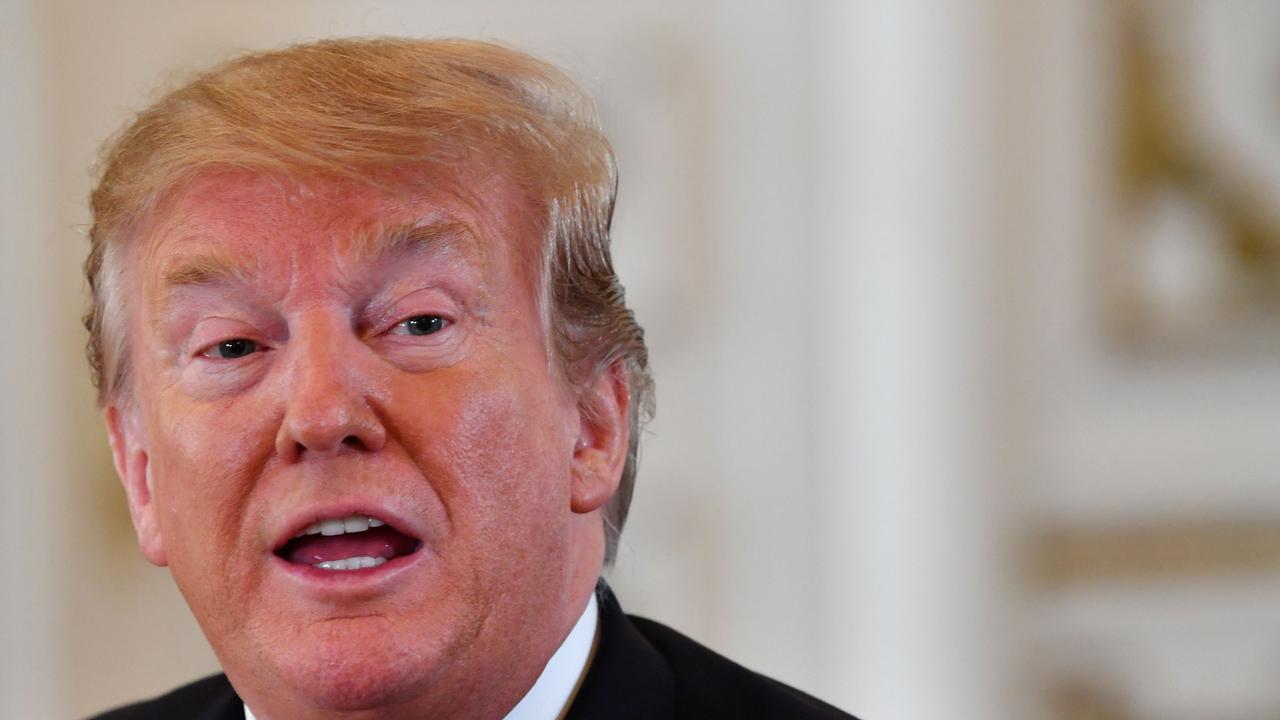Malcolm Turnbull welcomes Donald Trump’s remark US may return to TPP
The Japanese government has ruled out the possibility of renegotiating the Trans-Pacific Partnership to facilitate the US rejoining the agreement.

UPDATED: The Japanese government has ruled out the possibility of renegotiating the Trans-Pacific Partnership to facilitate the US rejoining the agreement. After the decision by the Trump administration to withdraw from the original TPP in January 2017, the remaining 11 countries decided to go ahead with the agreement, and are set to sign a new version on March 8 at a meeting in Chile. Tokyo’s reaction came after Mr Trump said earlier today that Washington would consider joining the agreement if it included better terms for his country. Spokesperson Yasutoshi Nishimura said at a press conference that if the US wanted to join, it would not mean a new renegotiation, as the TPP was an agreement initially signed by 12 countries, which included the US. Any small change could affect the negotiations severely, he said, after being asked about Mr Trump’s statements.
Japan had already explained the importance of the TPP to the US, and was doing everything possible to make it come into effect as soon as possible, he added. “I would do TPP if we made a much better deal than we had. We had a horrible deal,” Mr Trump said in an interview with US broadcaster CNBC on Thursday.
Australia, Brunei, Canada, Chile, Japan, Malaysia, Mexico, New Zealand, Peru, Singapore, Vietnam and the US, which account for about 40 per cent of global economic activity, signed the original TPP in 2016 after six years of negotiations.
PM welcomes Trump on TPP
Malcolm Turnbull says he doesn’t expect the United States to return to the trans-Pacific partnership “any time soon” but it would great if they did, following the stunning declaration from Donald Trump this morning that he would reconsider joining the TPP if the US could secure a ‘substantially better’ deal.
The Prime Minister said he had discussed trade with President Trump “pretty much every time we’ve met”.
“But I don’t expect the United States to join the TPP any time soon. We’re certainly not counting on it,” he said.
“It would be great if they did. It is a real engine for jobs, for investment. There are thousands of jobs that will be created by the TPP.”
Mr Turnbull said it would be a bigger deal if the US was part of it, and would become bigger when other countries joined.
“Indonesia has expressed strong interest,” he said. So has Thailand, South Korea. Even the UK has expressed interest in talking about it.”
Trump ‘reinforces importance of TPP’
Trade Minister Steven Ciobo, who is in Davos, has welcomed Donald Trump’s admission that the US could rejoin the Trans-Pacific Trade Pact.
Mr Ciobo will discuss the US President’s comments with his American counterpart — US Trade representative Robert Lighthizer — later today.
“They reinforce the Turnbull coalition government’s decision to take a leadership role to ensure this important trade agreement became a reality,” Mr Ciobo said.
“Labor and Bill Shorten declared the agreement was dead and wanted to walk away.
“If we had listened to Labor and withdrew Australia would be on the sidelines and our exporters would be left behind. Our farmers, manufacturers and services providers would be denied the big wins the CPTPP delivers.”
Mr Ciobo said the original TPP was “conceived as an open platform, where new members could join if they met the agreement’s standards and there was consensus”.
“This structure remains in the CPTPP,” he said.
“The CPTPP is a great deal for Australia that will drive exports and create jobs. It will eliminate more than 98 percent of tariffs in a trade zone with a combined GDP of AUD 13.7 trillion.
“The agreement will deliver 18 new free trade agreements between the CPTPP parties. For Australia that means new trade agreements with Canada and Mexico and greater market access to Japan, Chile, Singapore, Malaysia, Vietnam and Brunei.
“Our farmers will now be able to sell more beef, cheese, wheat and rice to Japan and more sugar to Canada and Mexico, while our manufacturers, service providers and small businesses will get more opportunity to export to economies worth $13.7 trillion.”
Trump: US may return to the TPP
Mr Trump earlier made the stunning admission that he would reconsider joining the TPP if the US could secure a ‘substantially better’ deal.
It is the first time Mr Trump has opened the door to US involvement in the 11 nation pact, which includes Australia, since he withdrew from it early last year.
“I would do TPP, if we made a much better deal than we had,” he said in an CNBC interview at the World Economic Forum in Davos, Switzerland.
“I would do TPP if we were able to make a substantially better deal. The deal was terrible, the way it was structured was terrible. If we did a substantially better deal, I would be open to TPP.”
The president did not say which parts of the deal would have to change and he gave no indication if this was something his administration was willing to pursue.
Even so, his comments will be welcomed by Australia, which was disappointed by Mr Trump’s withdraw from the TPP.
It will also be welcomed by world leaders, including those at the World Economic Forum in Davos, who will see it as a sign that Mr Trump is open to participating in such a free-trade pact despite his American First trade rhetoric.
Mr Trump’s withdrawal from the TPP was one of his first acts as president. He said it harmed American interests and that the decision to leave was “a great thing for the American worker.”
His comments in Davos come only days after the TPP partnership was finally sealed following lobbying efforts by Japan and Australia to convince a reluctant Canada to sign back on to the agreement.
The trade agreement, which will be signed in March, will lock in greater trade access for Australia to markets estimated to be worth almost $14 trillion.
The deal has been structured to allow the possibility of the US joining it in the future, but Mr Trump’s comments today suggest that substantial renegotiation of the deal would be required to win US participation.
Despite his comments on the TPP, Mr Trump also said in Davos that he much preferred bilateral trade deals to multilateral ones.
“I like bilateral, because if you have a problem, you terminate. ... You don’t have that same option” with multilateral deals, he said.
Earlier today Mr Trump declared he was bringing a message of ‘peace and prosperity’ as he landed in Davos to deliver his America First message to the gathering of globalist leaders.
The president arrived by helicopter into the snowbound Swiss resort declaring “We’re very happy to be here — the United States is doing very well and will continue to do well and this will be a very exciting two days.’
Mr Trump met soon after with British prime minister Teresa May, and denied reports that there was tension between the two leaders.
“We’re on the same wavelength in I think every respect,” Mr Trump said, adding that they have a “really great relationship, although some people don’t necessarily believe that.”
“We are very much joined at the hip when it comes to the military. We have the same ideas, the same ideals, and there’s nothing that would happen to you that we won’t be there to fight for you,” he told Mrs May. “You know that.”
Tensions have arisen between the leaders over Mr Trump’s retweets of a British far right extremist group’s anti-Muslim videos, an act which was criticised by the British leader.
Mr Trump has also recently cancelled a trip to London amid reports that he did not want to ensure the large protests that were likely to greet him in London.
The president is expected to spend his time in Davos reinforcing his America First message of trade, saying that US trade policy will be directed at improving the lives of Americans workers rather than other nations.
The president this week sent a signal to the Davos globalists by imposing his first trade tariffs — on imported washing machines and solar products. At the same time the rejigged Trans-Pacific Partnership was concluded which will promote free trade across the Asia Pacific.
With Geoff Chambers
Cameron Stewart is also US Contributor for Sky News Australia





To join the conversation, please log in. Don't have an account? Register
Join the conversation, you are commenting as Logout